To maximize your solar water heater's payback, focus on three key areas. First, boost energy savings by properly insulating pipes, setting the thermostat to 120°F, and using low-flow fixtures. Second, choose the right system size by calculating your household's hot water needs and considering local climate factors. Third, take advantage of available incentives, including the 30% federal tax credit and potential state or utility rebates. These steps will help you reduce installation costs, optimize efficiency, and shorten your payback period. By implementing these strategies, you'll be well on your way to enjoying long-term savings and environmental benefits.
Maximize Energy Savings
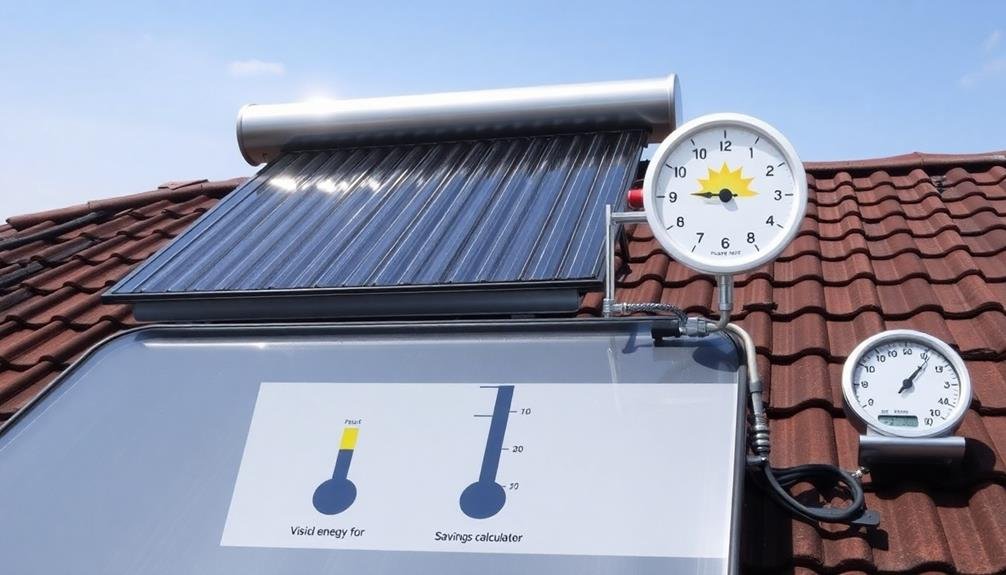
Efficiency is key when it comes to maximizing energy savings with your solar water heater. To get the most out of your system, start by guaranteeing proper insulation of your hot water pipes and storage tank. This will minimize heat loss and reduce the energy needed to maintain water temperature.
Adjust your water heater's thermostat to an ideal temperature, typically around 120°F (49°C). This setting balances comfort with energy efficiency. Install low-flow showerheads and faucet aerators to reduce hot water consumption without sacrificing performance.
Consider your usage patterns and schedule hot water-intensive activities during peak sunlight hours. This allows your solar water heater to work at its highest efficiency. Use timers or smart controllers to automate your system's operation, aligning it with your household's needs.
Regularly maintain your solar water heater by cleaning the collector panels and checking for leaks or damage. This guarantees ideal performance and longevity. If you have a backup heating element, use it sparingly to maximize solar energy utilization.
Lastly, monitor your energy consumption and compare it to previous bills. This helps you track savings and identify areas for further improvement in your solar water heating system's efficiency.
Choose Optimal System Size
Selecting the right size for your solar water heater is essential for maximizing its efficiency and cost-effectiveness.
To determine the best system size, first calculate your household's daily hot water consumption. Consider the number of occupants, their usage patterns, and any high-demand appliances like dishwashers or washing machines.
Next, factor in your location's climate and average solar radiation. Areas with more sunlight can typically use smaller systems, while cooler regions may require larger setups.
Don't forget to account for seasonal variations in both water usage and solar availability.
Consult with a professional solar installer to help you choose between active and passive systems, as well as flat-plate or evacuated-tube collectors.
They'll assess your roof space, orientation, and shading to recommend the most suitable option.
Leverage Available Incentives
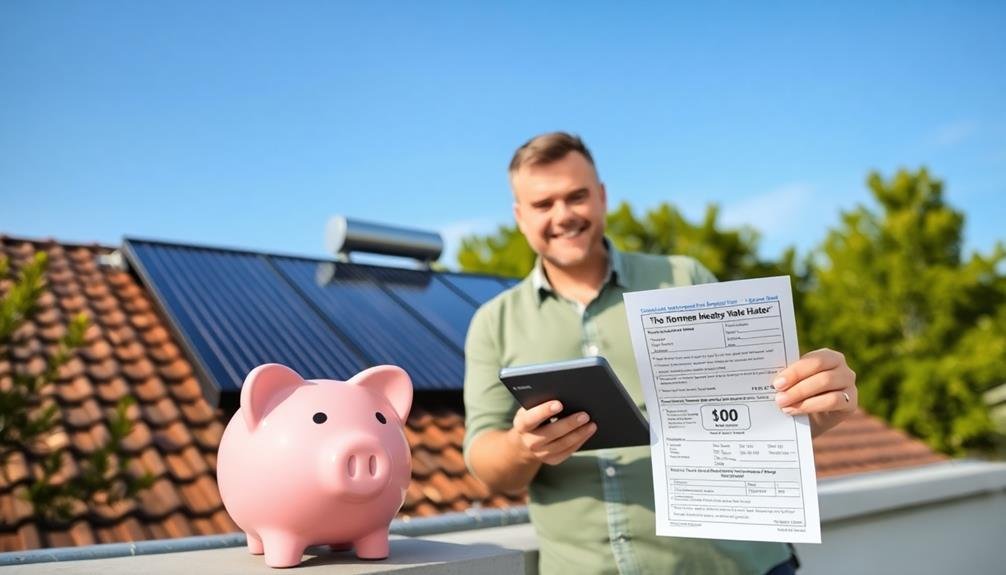
Numerous financial incentives can greatly reduce the upfront cost of your solar water heater installation. To maximize your savings, research federal, state, and local incentives available in your area. The federal government offers a 30% tax credit for solar water heaters, which can greatly lower your initial investment.
Many states provide additional tax credits, rebates, or grants to encourage solar water heater adoption. Check with your state's energy office or visit the Database of State Incentives for Renewables & Efficiency (DSIRE) website for up-to-date information. Some utility companies also offer rebates or low-interest loans for solar water heater installations.
Here's a quick overview of potential incentives:
| Incentive Type | Description | Typical Savings |
|---|---|---|
| Federal Tax Credit | 30% of installation cost | $1,500 – $3,000 |
| State Tax Credit | Varies by state | $500 – $1,500 |
| Utility Rebate | Fixed amount or percentage | $300 – $1,000 |
| Local Grant | City or county program | $500 – $2,000 |
| Performance-Based Incentive | Paid per kWh produced | Varies |
Don't forget to factor in these incentives when calculating your solar water heater's payback period. They can greatly reduce your out-of-pocket expenses and shorten the time it takes to recoup your investment.
Frequently Asked Questions
How Long Does a Typical Solar Water Heater System Last?
You'll typically find that a well-maintained solar water heater system can last 20 to 30 years. With proper care, you're looking at decades of efficient hot water production. Regular maintenance will help maximize your system's lifespan and performance.
Can Solar Water Heaters Work Effectively in Colder Climates?
Yes, solar water heaters can work effectively in colder climates. You'll need to choose a system designed for freezing temperatures, like those with antifreeze or drain-back features. They're less efficient in winter but still provide significant savings year-round.
What Maintenance Is Required for Solar Water Heating Systems?
You'll need to periodically clean the solar collectors, check for leaks, and inspect the system's components. It's important to flush the storage tank annually, replace the heat-transfer fluid when needed, and guarantee proper insulation. Don't forget to winterize if necessary.
Are Solar Water Heaters Noisy During Operation?
You'll be pleased to know that solar water heaters are typically very quiet. They don't have moving parts like traditional heaters, so you won't hear any noticeable noise during operation. You can enjoy hot water without sound disturbances.
Can I Use My Existing Water Tank With a Solar Water Heater?
You can often use your existing water tank with a solar water heater. It'll serve as a backup and storage system. However, you'll need to guarantee it's compatible and properly connected to the solar collectors. Consult a professional for guidance.
In Summary
You've learned three key strategies to boost your solar water heater's payback: maximizing energy savings, choosing the right system size, and taking advantage of incentives. By implementing these tips, you'll greatly reduce your energy bills and recoup your investment faster. Remember, a well-planned solar water heating system isn't just good for the environment—it's great for your wallet too. Take action now to start enjoying the benefits of clean, efficient, and cost-effective hot water for years to come.

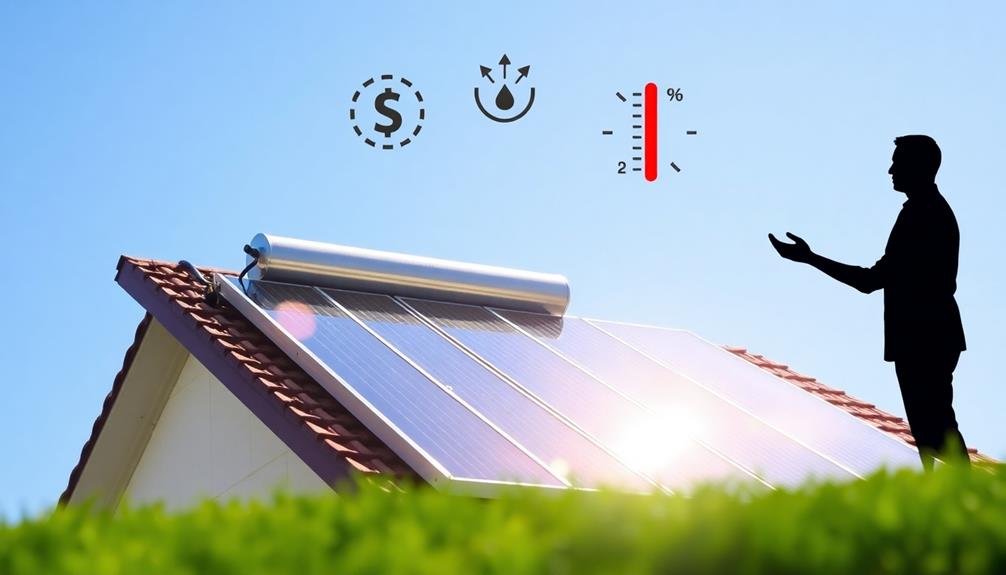

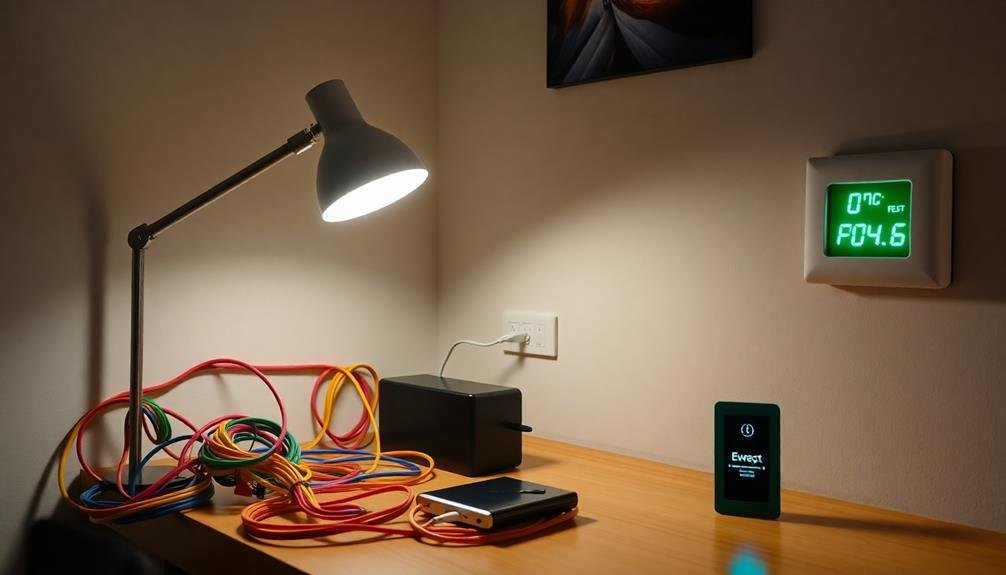
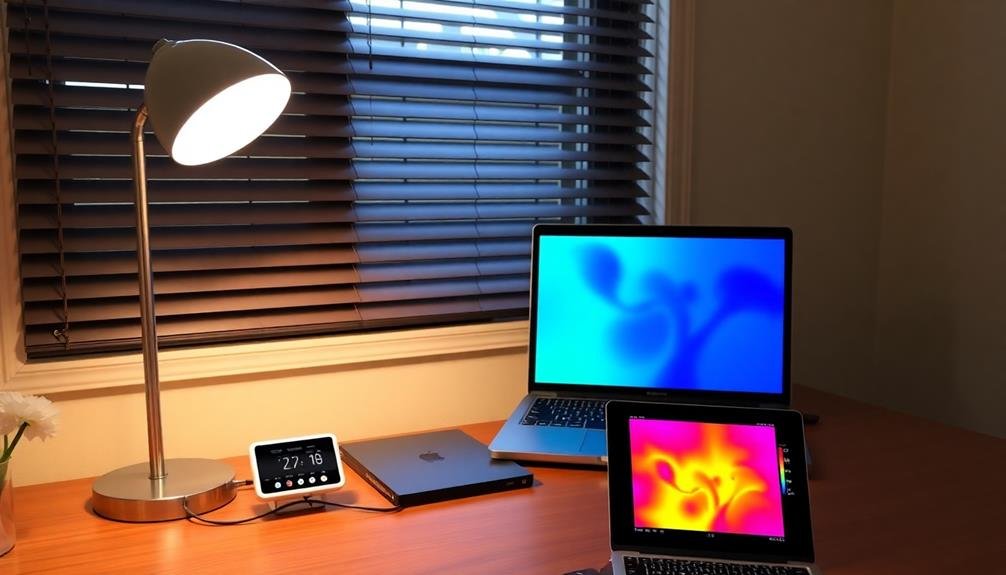
Leave a Reply